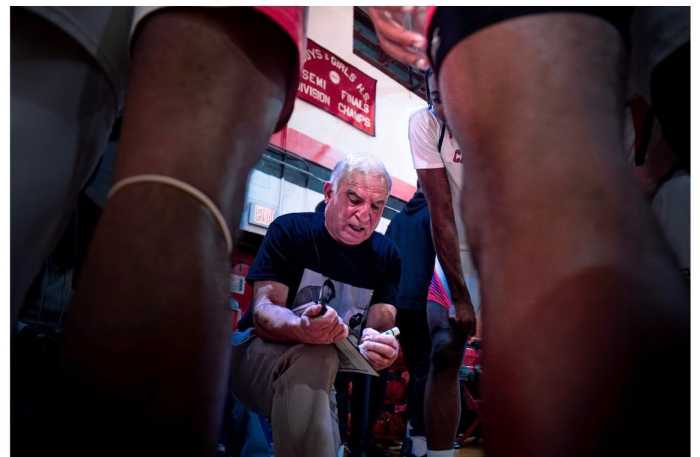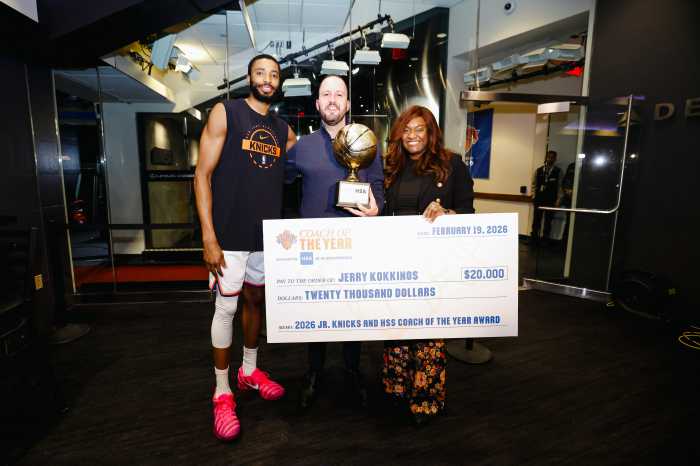Since the jaw dropping, 18-second knockout at the hands of Allan Green that left him quivering on the ring apron last November, Jaidon Codrington has maintained he's the same fighter with the same cocky yet humble demeanor. But one thing Codrington has been forced to learn is patience - in and out of the ring.
The 23-year-old Jamaica resident's first loss forced him to think more in the ring; now he waits for an opening while peppering his opponent with a stiff left jab instead of forcing it by forging in head-first with long-winded overhands right hands and circus-like left hooks.
He took the latest step in his comeback trail by dominating journeyman Carl Daniels in a unanimous decision in a six-round super middleweight bout during the undercard of the Ike Quartey-Vernon Forrest fight in front of 3,012 at The Theater at Madison Square Garden last Saturday night.
For those grown accustomed to watching Codrington's power-punching knockouts, the fighter they saw, the one with nine knockouts in his first nine bouts, was unfamiliar. Gone was the swashbuckling, cocksure kid who would tear opponents apart with a mix of power and finesse.
Against Daniels (49-10, five straight defeats), he hesitated when the two converged, lunged forward when throwing big punches instead of smoothly landing them. Codrington (12-1, 10 KO) used his jab far more frequently, which was not necessarily detrimental to his development, but in the past he would take advantage of openings. Saturday, he waited too long for them. Even after connecting with rapid-fire combinations, the power wasn't there; he was short-arming many punches, not wanting to get too close, his eyes squinting, as if expecting a punch, on several occasions. “That's getting ring awareness and ring smarts,” said Nirmal Lorick, Codrington's longtime trainer. “Now, it's like you can get hurt, too.”
Still, Codrington has handled the first speed bump in his career - or “pause” as he calls it - with ease, which should only help as he continues forward. He's won three straight fights, albeit against two no-names and one has-been.
Perhaps the tougher aspect of Codrington's life after suffering that first-round knockout last fall is remaining composed out of the ring, where everyone - fans, fellow fighters and reporters - want to know how he's changed. Codrington simply smiles or shrugs, adamantly maintaining he is the same fighter, just with the number one to the right side of his win-loss column. Still, the topic doesn't bother him. “If I can't live with that question, I don't need to be boxing,” he said.
While he says he is the same in the ring, of course, that isn't completely true. When a fighter is bludgeoned and embarrassed on national television, as Codrington was on Showtime by Green, he cannot possibly remain the same. “It takes you back almost a year from where you were at once,” Lorick said.
The entourages that would pack his locker room after each bout have significantly shrunken; he now sits quietly with his handlers before each fight. Whether out of fear or maturity, he no longer throws each punch as if it were his last. “I'm definitely smarter.” Codrington says. “I ease up a little bit, take my time a little more.”
Codrington doesn't like to look at the last few months as a comeback, saying “I never really left. I had a little knock and got up right back on the horse and started galloping away.”
Is there a fear factor in the ring? He scoffs. “Definitely not a fear factor, but I am more cautious. … I think I'm back.”
But if there was never a comeback, where did he go?


































